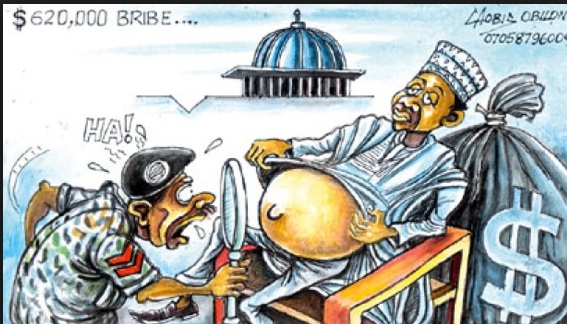The Nigerian economy has in recent times been battered on all sides. Its major source of income, crude, has lost almost 100 per cent of its value in a little over a year and is not seen to improve soon. The country’s economy has been downgraded by many rating agencies and some have gone as far as removing it from their watch list entirely.
The naira, the official currency of Nigeria, has not been spared the bashing. It has become one of the worst performing currencies on the African continent while the nation’s external reserves meant to be a buffer in stormy times has neared the red alert stage.
These are some of the major challenges the President Muhammadu Buhari-led government has been confronted with since it took the reins of power on May 29, 2015.
Efforts so far put in place by the government have not proved useful in pulling back the economy from the brinks as well as saving the naira from a free fall.
Although the discussions the IMF boss had with President Buhari, the Senate leadership and other stakeholders during the visit appeared harmless on the surface as reported in the media, there was palpable apprehension among stakeholders, many of which are still trying to unravel the real intent of the visit. Impact of Lagarde Visit on Nigeria

